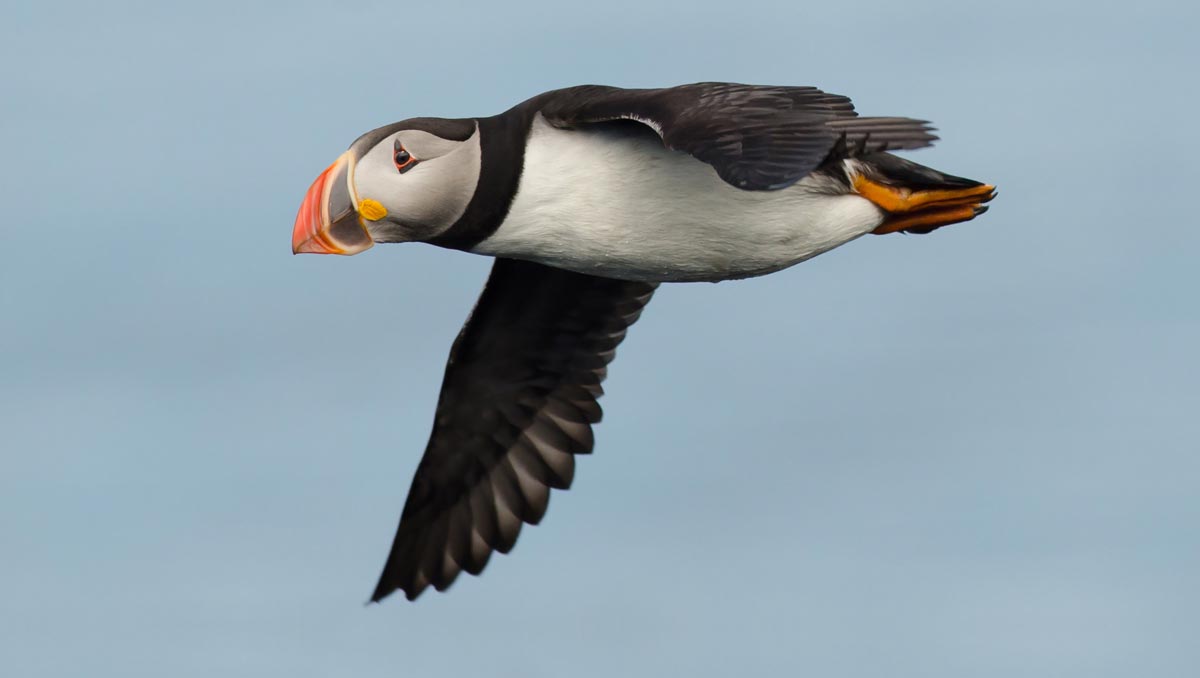Species populations falling, with some decreasing due to loss of habitat and less food availability
More than half the seabird species breeding on British and Irish coasts have declined over the last 20 years, according to the most comprehensive census to date.
Eleven of 21 nesting seabirds species have fallen, five species have remained stable and five have increased, some because of targeted conservation work, according to the Seabirds Count survey.
British and Ireland are internationally important for seabirds, holding most of the world’s nesting Manx shearwaters, northern gannets and great skuas and more than half of the north Atlantic populations of lesser black-backed gulls and common guillemots.
Some species have declined due to climate change reducing food availability and increasing storminess at nest sites, while others have been hit by commercial fishers depleting fish populations and, in some cases, predation on land by invasive mammals such as brown rats.
Common gull numbers have decreased by 49% since the last survey in 2000 because of loss of nesting habitat and less food for coastal-nesting birds.
Numbers of puffins have also declined at a majority of sites surveyed in the census, which took place between 2015 and 2021, before the latest outbreaks of avian flu.
Globally, the Atlantic puffin, for whom sand eels are a crucial, declining food-source in British and Irish waters, is considered vulnerable to extinction. Britain and Ireland hold about 8% of the global population.
The roseate tern population has soared by 152% since the last census, due to the protection of nest sites and work to reduce predation by non-native species.
The census, which was led by the Joint Nature Conservation Committee (JNCC) with more than 20 partner organisations, found big variations in trends by region.
In Scotland, 14 out of 20 breeding seabird species were found to be in decline, whereas in England eight species increased, six declined and five were stable. In Wales, 11 were increasing while six were in decline, and in Northern Ireland, seven were increasing with four in decline.
Seabirds were doing best around the Republic of Ireland coastline, with 15 species increasing and only two declining.
“Seabirds are sentinels for the health of marine ecosystems, highlighting action that needs to be taken to recover the marine environment,” said Gemma Harper, the chief executive of JNCC. “Loss of biodiversity is weakening the ability of the marine environment to withstand disturbance, adapt to and mitigate the impacts of climate change, and is affecting the ability of our seas to supply critical services for society.”
Beccy Speight, the chief executive of the RSPB, said: “For decades, our seabird populations have been battered by the impact of humans, from the introduction of predators to islands that destroy nests and chicks to the increasing effects of climate change that are impacting the availability of their food such as sand eels.
“The evidence shows that conservation efforts and smart policies do work and help increase the resilience of our seabirds to better weather whatever new storm is on the horizon.”
